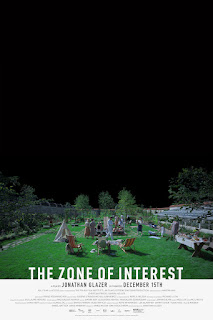☆☆☆☆☆
The London skyline glimmers with an ethereal glow in the opening shots of All of Us Strangers, as screenwriter Adam (Andrew Scott) sits at his computer and struggles with creating something new. And the city glows with promise—but Adam can't touch it, if only because the windows in his high-rise apartment block don't open.
Adam seems to be one of only two tenants in the whole of the modern building, which seems to open onto the sky, despite its dim and claustrophobic hallways. The other is Harry (Paul Mescal). They have seen each other before, in the oddest of ways, and when they finally meet Harry wastes no time in making the moves on Adam. Though he's rebuffed, something about their meeting seems almost fated.
And call it coincidence, but just after meeting and rejecting Harry, Adam takes a trip to his childhood home and finds, to almost no astonishment at all, that his mother and father still live in the house—even though they died decades ago.
So, at least on this one level, All of Us Strangers is a ghost story, but there are no sinister happenings, no spooky goings-on: These ghosts exist to try to reconcile the present and the past, and the whole of All of Us Strangers takes place in a quiet and melancholy place between life and death as Adam meets with his mother and father (Claire Foy and Jamie Bell) with increasing frequency.
Largely, they discuss Adam's homosexuality, which is such an integral part of of All of Us Strangers—a movie that is in equal parts emotionally resonant, sexually stimulating, and engagingly mystifying—that it's something of a shock to learn the novel on which it's based is about a straight man and his relationship with a woman (and the ghosts of his parents). Writer-director Andrew Haigh has taken the scenario and turned it into a film that contains at its core a quiet devastation known mainly to gay men, yet I suspect also broad enough to touch the hearts of anyone who grew up differently than they, or their parents, hoped.
As Adam and Harry, initially aloof, grow closer, so does Adam draw nearer to his parents, in a flight of fantasy that remains perfectly grounded. An unexpected delight in All of Us Strangers is how perfectly, and without stereotype, it draws us back into the mid-1980s and the struggles of a teenager growing up gay in the twin shadows of homophobia and AIDS.
All of Us Strangers is partly about coming to terms with a difficult, turbulent past, and with the guilt that's left for so many who escaped the terror of the times only to struggle with the emotional challenges of finding love. But, more deeply, it's about the way death and time work together to leave everyone unfinished, unresolved, yearning for reconciliation.
There's another layer, too, to All of Us Strangers, one I haven't touched on, one that every viewer should be allowed to discover on their own. I thought it massively satisfying, deeply puzzling, and mysterious enough that I'm eager to see All of Us Strangers another time. Or two. Or three.
Viewed December 31, 2023 — Landmark Sunset 5
1500





